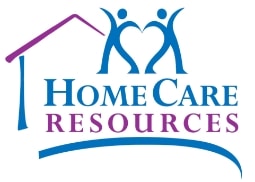
Aging in place is becoming more popular among seniors, even those diagnosed with Alzheimer’s disease. However, in this scenario, specialized Alzheimer’s home care is required to protect their health and safety.
Alzheimer’s home care is critical in assisting seniors to live full lives as they age in place. This type of care helps them with their daily routines, promotes cognitive engagement, and gives family members essential tools for dealing with the complexity of dementia.
Morning Routines and Daily Structures
Seniors with Alzheimer’s benefit greatly from establishing a predictable schedule. Mornings might be especially difficult because disorientation and confusion are more likely after waking up.
Alzheimer’s home care specialists can support the senior in developing an organized morning routine, which may include a consistent wake-up time, help with hygiene and dressing, or generally getting ready for the day. In addition to a routine, the environment should be calming, which reduces anxiety and sets a positive tone for the rest of the day.
Not only is a consistent routine comfortable, but it may also help with memory retention. The repetition of daily actions such as brushing teeth, combing hair, and preparing breakfast stimulates cognitive function. Alzheimer’s home care providers typically break these activities into basic, achievable steps, ensuring seniors remain engaged without becoming overwhelmed.
Cognitive and Physical Engagement
Engaging both the mind and body is critical for delaying the progression of Alzheimer’s disease and preserving a senior’s quality of life. Throughout the day, Alzheimer’s home care providers include stimulating activities tailored to the senior’s abilities. This might include cognitive exercises such as puzzles, reading, and memory games that are used to engage the brain and help delay the onset of symptoms.
Family members and home care can also encourage seniors to engage in light physical activities, such as walking or chair exercises, to improve their mobility and overall health.
Social engagement is another important aspect of Alzheimer’s home care. Family members can organize informal gatherings or virtual calls with loved ones and friends to help seniors avoid isolation and stay connected to those they care about.
Mealtime and Nutrition
Proper nutrition is essential for seniors with Alzheimer’s because the condition might impair their appetite and ability to prepare meals. Having Alzheimer’s home care in place ensures that seniors receive balanced, nutritious meals that are both simple to eat and meet their dietary requirements.
Additionally, home care can help with meal planning, grocery shopping, and food preparation while taking into account any swallowing issues or sensory alterations. Last but not least, structured mealtimes reduce confusion and can help prevent unhealthy eating patterns like missing meals or binge eating.
Evening Wind Down and Sleep Support
As the day comes to an end, Alzheimer’s home care focuses on providing a tranquil environment for seniors. Evening routines are equally important as morning ones.
Family members or home health can assist with bathing, dressing for bed, and creating a pleasant environment that encourages peaceful sleep. Sleep problems and overnight roaming are typical among seniors with Alzheimer’s, so having someone there ensures seniors’ safety and security, reducing the danger of accidents or disorientation at night.
Alzheimer’s home care provides important assistance to seniors aging in place, assuring their safety, well-being, and dignity. Additionally, a well-rounded plan empowers both seniors and their families, providing peace of mind and improving daily life despite the challenges of Alzheimer’s.
If you or an aging loved one are considering Alzheimer’s Home Care in Scottsdale, AZ, please contact the caring staff at Home Care Resources today. Call (602) 443-4700
Home Care Resources is a top provider of home care services in Phoenix, Tempe, Scottsdale, Glendale, Paradise Valley, Peoria, Sun City, Sun City West, Surprise, Goodyear, Cave Creek, Care Free, Fountain Hills, and surrounding areas.
Sources:
- https://www.alz.org/help-support/caregiving/daily-care/daily-care-plan
- https://www.nia.nih.gov/health/alzheimers-and-dementia/alzheimers-disease-fact-sheet
- https://www.alz.org/alzheimers-dementia/what-is-alzheimers
- https://www.ncoa.org/older-adults/health/physical-health/chronic-disease/alzheimers/
- Six Warning Signs of Diabetes to Watch for in Seniors with Dementia - May 19, 2025
- Understanding Chronic Conditions in Seniors: The Importance of Support - May 9, 2025
- Helping Your Elderly Loved One Maintain Healthy Vision - April 24, 2025




